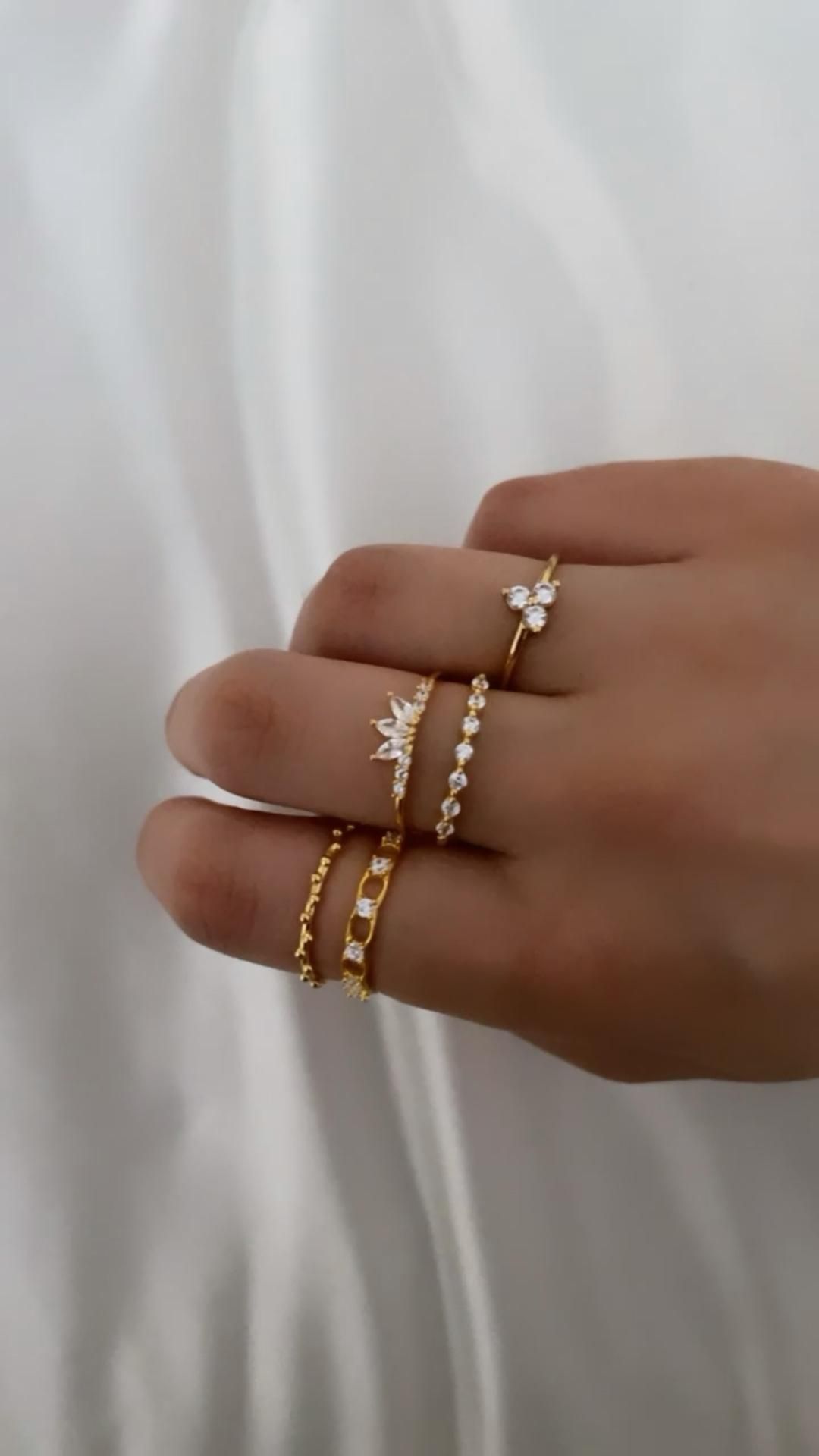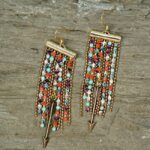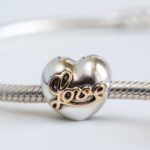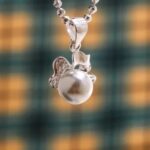The diamond market has always been known for its allure and profitability, with diamonds being sought after by individuals all over the world. If you find yourself in possession of a diamond and are considering selling it, one option worth exploring is selling it to jewelry stores. In this article, we will delve into the potential of selling diamonds to jewelry stores as a lucrative option.
The demand for diamonds continues to increase, making the diamond market an appealing industry to be a part of. Jewelry stores play a significant role in this market, constantly seeking high-quality diamonds to offer their customers. Therefore, understanding whether jewelry stores will buy diamonds and what influences their decision becomes crucial in pursuing this avenue for selling your precious stone.
Several factors influence jewelry stores’ willingness to buy diamonds from individuals. One of the most critical factors is the quality of the diamond itself. The clarity, cut, carat weight, and color (known as the 4Cs) are essential criteria that determine a diamond’s value. Additionally, certification from reputable grading laboratories adds credibility and assurance to the diamond’s quality. Furthermore, jewelry stores consider market trends and supply-demand dynamics when making buying decisions.
In the next sections of this article, we will explore these factors in more detail and guide you through determining the value of your diamond, researching potential jewelry stores as buyers, preparing your diamonds for sale effectively, negotiating with jewelry stores professionally, considering alternative options for selling your diamond if needed, ensuring smooth transactions and protecting your interests throughout the process. By understanding these dynamics fully, you can maximize your chances of success when selling your diamonds to jewelry stores.
Factors that Influence Jewelry Stores’ Willingness to Buy Diamonds
When it comes to selling diamonds to jewelry stores, there are various factors that greatly influence their decision. Understanding these factors can help individuals navigate the selling process and increase their chances of a successful transaction. One of the most crucial factors for jewelry stores is the quality of the diamond. Jewelry stores are looking for diamonds with exceptional cut, color, clarity, and carat weight, commonly known as the 4Cs.
Diamond certification also plays a vital role in jewelry stores’ buying decisions. A certified diamond ensures that it has been evaluated and graded by an independent gemological laboratory. The most respected and recognized grading authority is the Gemological Institute of America (GIA). Having a GIA certificate increases the credibility and market value of the diamond, making it more attractive to potential buyers.
Market value is another important consideration for jewelry stores when purchasing diamonds. Like any other commodity, supply and demand dynamics affect diamond prices in the market. If there is high demand for certain types of diamonds or if they have unique characteristics that make them rare or valuable, jewelry stores may be more willing to buy them at a higher price.
In addition to these primary factors, other secondary factors can also influence jewelry stores’ willingness to purchase diamonds. For example, current market trends can impact what types of diamonds are in demand at any given time. Additionally, certain anomalies or distinctive characteristics in a diamond, such as fluorescence or fancy colors, could make it more appealing to jewelers who cater to niche markets.
By considering these factors when preparing to sell their diamonds, individuals can position themselves for success when approaching jewelry stores. It is essential to have realistic expectations about the value of their diamond based on its qualities and the current market conditions. Additionally, ensuring proper certification and understanding market trends can give sellers an edge in negotiating fair prices for their precious stones from reputable jewelry stores.
How to Determine the Value of Your Diamond
Determining the value of your diamond is a crucial step in selling it to jewelry stores. By understanding the factors that influence a diamond’s worth, you can confidently negotiate a fair price for your precious gemstone. This section will provide you with a detailed guide on how to assess the value of your diamond, including the 4Cs (carat, cut, clarity, and color), the importance of grading and certification, as well as additional factors that might influence its value.
Assessing the 4Cs: Carat, Cut, Clarity, and Color
The 4Cs are universally recognized as the primary attributes that determine a diamond’s quality and value. Carat refers to the weight of the diamond, with larger diamonds generally commanding higher prices. The cut determines how well a diamond interacts with light, affecting its brilliance and sparkle. Diamonds with excellent cuts are more valuable than those with lesser-quality cuts.
Clarity describes the presence or absence of internal flaws called inclusions and external blemishes on the surface of the diamond. The fewer imperfections in a diamond, the higher its clarity grade and hence its value. Finally, color refers to how colorless or tinted a white diamond appears. Diamonds graded D (colorless) to Z (light yellow or brown) have varying levels of desirability and worth.
Importance of Diamond Grading and Certification
To ensure transparency in selling your diamond, it is essential to have it graded and certified by reputable gemological laboratories such as GIA (Gemological Institute of America) or AGS (American Gem Society). These institutions evaluate diamonds based on their 4Cs and issue official certificates that provide an accurate description of your stone’s quality characteristics. Jewelry stores rely heavily on these certifications when determining a fair price for diamonds since they add credibility to their evaluations.
Additional Factors Affecting a Diamond’s Value
Apart from the 4Cs and grading certificates, there are other factors that can influence the value of your diamond. Market trends play a significant role in determining what jewelry stores are willing to pay for diamonds at any given time. Diamonds that possess rare characteristics or display unique features, such as fancy colors (pink, blue, green) or fluorescence, may command higher prices due to their rarity.
It’s also essential to be aware of any treatments or enhancements the diamond may have undergone since these can impact its value. Familiarize yourself with recent auction results and market values for similar diamonds to gain a better understanding of the potential selling price for your stone.
By carefully assessing your diamond’s value using the 4Cs, obtaining accurate certification, and considering additional factors, you will be better equipped to negotiate a fair price with jewelry stores interested in purchasing your diamond. Remember, knowledge is power when it comes to selling valuable gemstones like diamonds.
Researching Potential Jewelry Stores to Sell Your Diamonds
When it comes to selling your diamonds, finding the right jewelry store to sell them to is essential. Researching potential jewelry stores can help you ensure that you are getting a fair price for your diamonds and that you are working with a reputable buyer. Here are some tips on how to research potential jewelry stores to sell your diamonds:
- Look for Established Stores: Start by looking for reputable jewelry stores with a long-standing presence in the industry. These stores often have established connections and expertise in buying diamonds. Check for customer reviews and ratings online, as well as any certifications or affiliations that indicate their credibility.
- Check Their Specialty: Not all jewelry stores specialize in buying diamonds from individuals. Look for stores that specifically mention diamond buying services or have buyback programs in place. These stores are more likely to have trained experts who can accurately assess the value of your diamond and offer competitive prices.
- Compare Offers: It’s always a good idea to get multiple offers before deciding on a buyer. Reach out to different jewelry stores and see what they are willing to pay for your diamond. Keep in mind that pricing may vary based on factors such as the current market demand and supply, so it’s important to consider multiple offers before making a decision.
- Seek Recommendations: If you know someone who has sold their diamond before, ask them for recommendations on trustworthy jewelry stores. Personal recommendations can provide valuable insights into the selling experience and help you find reliable buyers.
When researching potential jewelry stores, it’s crucial to exercise caution and verify their authenticity before proceeding with any transactions. By taking these steps, you can increase your chances of finding a reliable buyer who will offer a fair price for your diamonds.
| Factors to Consider | Why It’s Important |
|---|---|
| Established Presence and Reputation | Ensures credibility and reliability of the jewelry store |
| Specialization in Diamond Buying | Showcases expertise and ability to accurately assess diamond value |
| Comparing Offers | Ensures you are getting a fair price for your diamond |
| Seeking Recommendations | Gains insights from individuals who have had positive experiences with specific jewelry stores |
Preparing Your Diamonds for Sale
When preparing to sell your diamonds to jewelry stores, it is essential to ensure that your diamonds are presented in the best possible way to maximize their appeal and value. This section will provide you with step-by-step instructions on how to clean, polish, and present your diamonds effectively.
- Cleaning and Polishing: Before presenting your diamonds to jewelry stores, it is crucial to clean them thoroughly. Use a soft toothbrush or a jewelry cleaning solution specifically designed for diamonds to remove any dirt or debris from the surface of the stones. Be gentle during the cleaning process to avoid damaging the diamond or its setting. Once cleaned, use a lint-free cloth to dry and polish the diamond, giving it a sparkling appearance.
- Packaging: Proper packaging can significantly impact the impression of potential buyers at jewelry stores. Consider placing your diamond in a velvet or satin pouch before presenting it for sale. This not only adds an elegant touch but also protects the diamond from scratches or damage during transportation.
- Photography: Good quality photographs play a vital role in attracting buyers’ attention online and offline when selling your diamond through different avenues. Invest time in capturing high-resolution images of your diamond from different angles with proper lighting. This will allow potential buyers at jewelry stores to have a better understanding of the quality and visual appeal of your diamond even before they see it in person.
In addition to these tips, consider getting a professional appraisal of your diamond before approaching jewelry stores for sale. An appraisal certificate can provide credibility and assurance about the quality and value of your diamond, which can in turn strengthen your negotiation position when discussing prices with potential buyers.
By following these tips and tricks, you can enhance the presentation of your diamonds and increase their desirability among jewelry stores looking to buy diamonds. Having well-prepared diamonds will attract more serious offers and ultimately lead you towards successful transactions.
| Preparation Tips | Description |
|---|---|
| Cleaning and Polishing | Thoroughly clean and polish your diamonds to remove dirt and enhance their sparkle. |
| Packaging | Present your diamonds in an elegant velvet or satin pouch to protect them during transportation and create a favorable impression. |
| Photography | Capture high-resolution photos of your diamond from different angles with proper lighting to showcase its quality and visual appeal. |
| Professional Appraisal | Consider getting an appraisal certificate for your diamond to provide credibility and assurance about its quality and value. |
Approaching Jewelry Stores
When it comes to selling your diamonds to jewelry stores, approaching them with the right negotiation and selling techniques can significantly impact the outcome of the transaction. Here are some tips to ensure a successful experience:
- Do Your Research: Before approaching any jewelry store, it’s important to do your homework. Research different jewelry stores in your area that specialize in buying diamonds and have a good reputation. Look for stores that have been established for a considerable amount of time and have positive customer reviews. This research will help you identify trustworthy stores that are more likely to offer fair prices for your diamonds.
- Present Your Diamonds Professionally: First impressions matter, so make sure you present your diamonds in the best possible way. Clean and polish them to maximize their appeal before taking them to a jewelry store. Additionally, consider packaging them nicely or even getting professional photographs taken to showcase their beauty.
- Approach with Confidence: When visiting a jewelry store, approach with confidence and professionalism. Dress appropriately and have a clear idea of what you want to achieve from the interaction. Be prepared to negotiate but also be open-minded about the store’s perspective on pricing.
- Understand Their Considerations: It’s essential to understand the factors that are important to jewelry stores when buying diamonds. They will consider factors such as diamond quality, certification, market value, and demand at the time of purchase. Having knowledge about these considerations will enable you to understand their perspective better and negotiate accordingly.
- Effective Negotiation Strategies: Successful negotiation is crucial when selling your diamonds to a jewelry store. Start by setting a realistic price range based on market research and diamond appraisals if applicable. Remain calm and confident throughout the negotiation process, while being open to compromise and finding common ground with the store representative.
Remember that not all negotiations will result in an immediate sale, as stores may need more time or other evaluations before finalizing a purchase. If you’re unsuccessful with one store, don’t be discouraged. Explore other jewelry stores or alternative selling options as mentioned in the article’s outline.
By employing these negotiation and selling techniques, you can increase your chances of securing a fair price for your diamonds when approaching jewelry stores.
Alternatives to Jewelry Stores
Selling diamonds to jewelry stores is one option for those looking to cash in on their precious gemstones. However, it is important to note that there are alternative avenues available for selling diamonds as well. In this section, we will explore some of these options and discuss the pros and cons associated with each.
Online Auctions
One popular alternative to selling diamonds through jewelry stores is participating in online auctions. Online auction platforms offer a wide reach and can attract potential buyers from around the world. This increased exposure can potentially result in a higher selling price for your diamond. However, it is important to carefully research and choose reputable auction websites that have strict authentication processes to ensure the legitimacy of buyers.
Diamond Buying Services
Diamond buying services are companies that specialize in purchasing diamonds directly from individuals. These services often provide an efficient and convenient way to sell your diamond, as they typically offer competitive prices based on market value. Some advantages of using diamond buying services include quick transactions, expert evaluations, and hassle-free processes. However, it is crucial to do thorough research on the credibility and reputation of these services before engaging with them.
Private Buyers
Another option for selling diamonds outside of jewelry stores is approaching private buyers. Private buyers can include individual collectors or investors who have an interest in acquiring unique or rare gemstones.
Building connections within relevant communities or attending gem and jewelry shows can help you connect with potential private buyers. While this option may require more effort in terms of networking and negotiations, it can provide an opportunity for obtaining a higher price if you find the right buyer who appreciates the value of your diamond.
It is essential to evaluate each alternative based on factors such as convenience, potential profitability, buyer credibility, and personal preferences. Additionally, when exploring these options, it is advisable to consult experts or professionals who can guide you through the process and ensure you make informed decisions. Ultimately, by considering these alternatives to jewelry stores, you increase your chances of finding the best avenue to sell your diamond and maximize your return on investment.
After the Sale
After successfully selling your diamonds to a jewelry store, it is essential to focus on ensuring a smooth transaction and protecting your interests. This section will provide you with valuable advice and guidance on how to navigate this crucial phase of the selling process.
- Handling Paperwork and Documentation: Once you have agreed upon a price with the jewelry store, it is crucial to ensure that all the necessary paperwork and documentation are in order. This includes providing any original certificates or appraisals for the diamond, as well as a bill of sale or receipt. Make sure to obtain copies of all relevant documents for your own records and keep them in a safe place.
- Protecting Against Potential Risks and Scams: Selling diamonds can sometimes attract unscrupulous individuals who may attempt scams or fraudulent activities. To protect yourself, it is essential to be cautious and vigilant throughout the process. Consider bringing along a trusted friend or family member when meeting with potential buyers, especially if the transaction involves large sums of money.
- Maintaining Transparency and Open Communication: Throughout the selling process, it is crucial to maintain open communication with the jewelry store. Be responsive to their inquiries or requests for information promptly and provide any necessary clarifications or documentation they may require. Clear, transparent communication will help build trust between you and the buyer, leading to a smoother transaction overall.
By following these tips, you can ensure that your diamond sale goes smoothly while protecting your interests. Remember to handle all paperwork diligently, be mindful of potential risks, and maintain clear communication with the jewelry store. Following these steps will not only facilitate an efficient transaction but also give you peace of mind throughout the process.
Conclusion
In conclusion, selling diamonds to jewelry stores can be a profitable option for individuals looking to offload their precious gemstones. Throughout this article, we have explored the factors that influence jewelry stores’ willingness to purchase diamonds and provided valuable information on assessing diamond value, researching potential buyers, preparing diamonds for sale, and negotiating with jewelry stores. By understanding these dynamics, individuals can increase their chances of a successful transaction and maximize the return on their investment.
It is important to remember that the quality and market value of your diamond are crucial factors in determining whether jewelry stores will consider buying it. Certification and grading play a key role in establishing the authenticity and quality of the diamond. Additionally, keeping an eye on market trends and rare characteristics can further enhance its value. By thoroughly investigating potential buyers, individuals can ensure they select reputable jewelry stores with a trustworthy reputation.
While approaching jewelry stores may be the most common route for selling diamonds, it is worth exploring alternative options such as online auctions, diamond buying services, or private buyers. Each alternative carries its own set of pros and cons, so it is essential to weigh these carefully before proceeding. Whichever route individuals choose, it is vital to handle paperwork and documentation securely while staying vigilant against potential risks and scams.
Frequently Asked Questions
Can you sell diamonds to a jewelry store?
Selling diamonds to a jewelry store is indeed a possibility, although it may not always be the most lucrative option. Jewelry stores often buy diamonds from individuals, especially if they are looking for unique pieces to add to their inventory or if the diamonds meet certain criteria such as exceptional quality or carat weight.
However, it’s important to keep in mind that jewelry stores typically purchase diamonds at wholesale prices, which are significantly lower than the retail price at which they sell them. Therefore, selling diamonds directly to a jewelry store may not fetch the highest possible price for your precious gemstones.
How much will jewelers pay for diamonds?
The amount jewelers will pay for diamonds can vary based on various factors such as the diamond’s quality, carat weight, cut, and color. Jewelers typically use established grading systems like the 4Cs (cut, clarity, color, and carat weight) to evaluate and price diamonds.
Other considerations that influence pricing include market demand, prevailing trends in the industry, and whether the jeweler plans to use or resell the diamond. Generally speaking, jewelers aim to attain a profit margin when purchasing diamonds from individuals; hence their purchase offers will typically be less than what you could potentially receive by selling directly to an end consumer or through other channels.
What is the best way to sell jewelry with diamonds?
When it comes to selling jewelry with diamonds, there isn’t one definitive best way as individual circumstances can play a significant role in determining which approach suits one’s needs. However, some commonly recommended methods include consignment sales through reputable jewelers or auction houses where experienced professionals can effectively market your jewelry on your behalf.
Another option is utilizing online platforms specifically designed for buying and selling pre-owned jewelry with verified buyers and sellers who have been authenticated by these platforms’ authentication processes. Additionally, seeking out multiple appraisals from certified gemologists can provide you with a better understanding of your diamond’s value and potentially help negotiate better deals when approaching potential buyers directly.

Welcome to my jewelry blog! My name is Sarah and I am the owner of this blog.
I love making jewelry and sharing my creations with others.
So whether you’re someone who loves wearing jewelry yourself or simply enjoys learning about it, be sure to check out my blog for insightful posts on everything related to this exciting topic!





